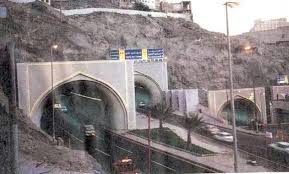 Makkah, May 10: Experts participating in the 13th Scientific Forum for Haj and Umrah Research held at Umm Al-Qura University in Makkah stressed that Mount Abu Qubais can’t be demolished near Al-Safa door at the Grand Mosque due to the Zamzam springs.
Makkah, May 10: Experts participating in the 13th Scientific Forum for Haj and Umrah Research held at Umm Al-Qura University in Makkah stressed that Mount Abu Qubais can’t be demolished near Al-Safa door at the Grand Mosque due to the Zamzam springs.
Prince Muhammad bin Naif, interior minister and chairman of Supreme Haj Committee inaugurated recently the scientific forum which discussed urban and architect applications in Makkah and the holy sites.
However, Muhammad Idris, undersecretary of Custodian of the Two Holy Mosques Institute for Haj Research in Umm Al-Qura University, said that Mount Abu Qubais represents an obstacle to the expansion of Safa passage but not the royal palaces.
“The reports of Saudi Geological Survey proved that the mountain contains the headwaters of Zamzam water, and if it was destroyed springs will be damaged,” Idris said.
Sami Barhameen, secretary general of the Makkah Development Authority, said that the comprehensive plan for Makkah in its strategic framework for all projects, including that of King Abdullah Project for Reconstruction of Holy Makkah has been approved.
He said the plan includes 21 development sub-plan to cover all sectors of Makkah, such as the Geographical Information Systems (GIS), the demographic studies, the transport and environment plans, the expansion of the Grand Mosque, the structural plan and building controls plan.





Comments
Add new comment